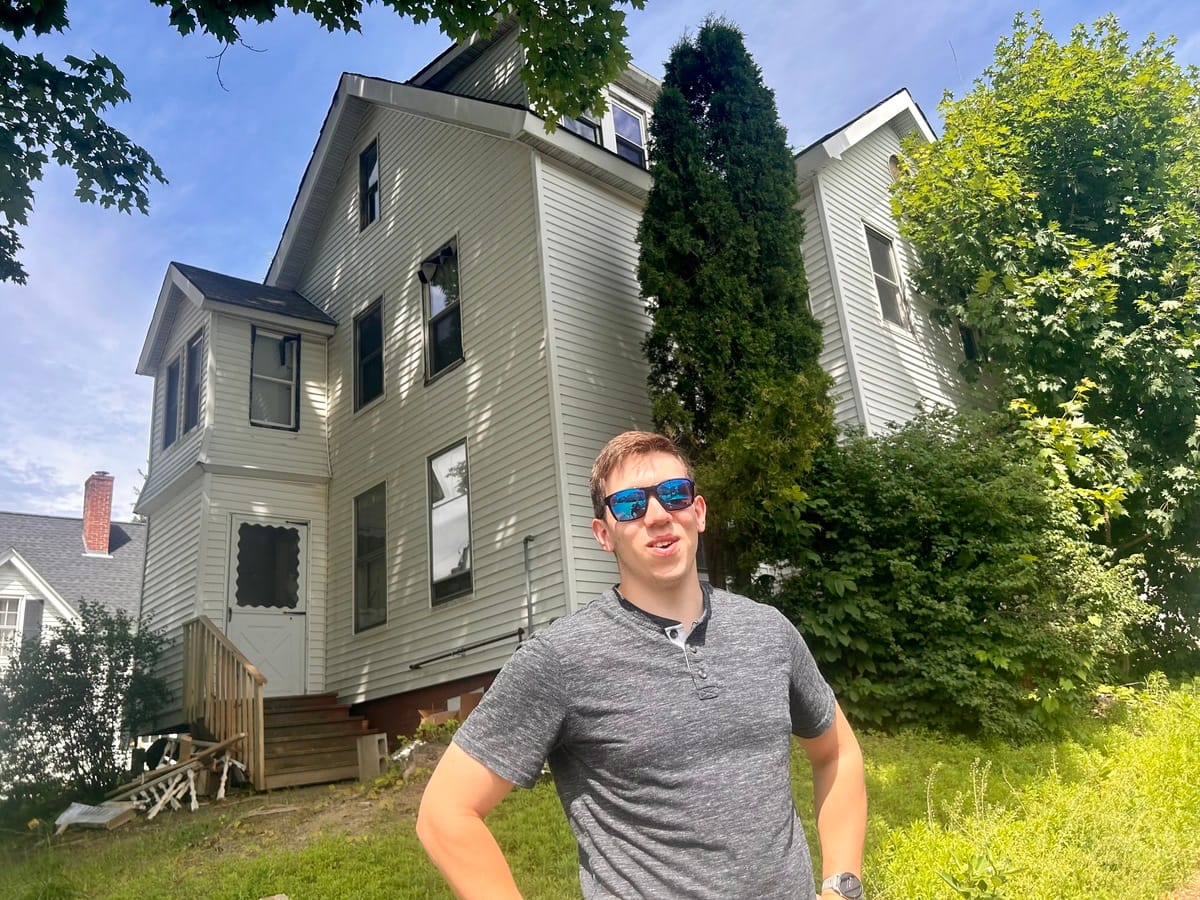This young Maine 'house hacker' paid just $540 to get his first duplex

Source: Bangor Daily News
Author: Zara Norman
Drake Zimba graduated college last year. He just bought his own home.
That just about passes for news during the pandemic-era housing affordability crisis. But the transaction is notable for the way the 23-year-old from Benton bought the duplex on Gannett Street in Augusta that was listed for nearly $200,000.
He was able to bring closing costs down using a combination of first-time homebuyer programs and seller credits that experts say should be more widely known by young buyers. Zimba only needed $540 to close out the sale on a property that will make him money for years.
This strategy -- which Zimba, his advisers and others in the industry call "house hacking" -- may not work in more costly areas of Maine, but it holds valuable lessons for other young people struggling to enter the market.
"I only knew about these programs three to six months before I got [the duplex]," Zimba said. "I thought I was gonna have to shell out, you know, 10 grand or something."
Zimba never intended on investing in real estate at such a young age. Though he was a double business and management economics major in college, he was working as an estimator at Bath Iron Works until March. That changed when a family friend put him in touch with Brett Brockway, who owns Standard Management Company in Waterville.
A team quickly formed around Zimba. There was Brockway, who became Zimba's mentor and helped him get his real estate license, Deb Hacskaylo, Zimba's lender with Fairway Independent Mortgage Corp., and his agent, Max Hopper. Together, they walked Zimba through all the different programs he could take advantage of.
"The state of Maine is just wonderful with all the different programs that they have to offer right now," Brockway said. "I don't think you need to be savvy. I don't think enough people know that you can do this."
MaineHousing, the state housing authority, offers a first home loan program that Zimba qualified for. It offers low fixed-rate mortgages below 6 percent plus assistance with down payments and closing costs. Zimba said those grants range between $5,000 and $14,000.
Zimba used a loan backed by the Federal Housing Administration. Since he's living in one of the duplex's 3-bedroom units while renting out the other, Zimba's mortgage and other expenses will be paid off by his tenants each month. That prospective rental income helped secure the loan.
He also got $10,000 in seller's credits -- when the seller contributes more to closing costs to give the buyer a break -- since the duplex needs a lot of work. Previous tenants ripped all the smoke detectors out after being evicted, Zimba said, and he had to fix the roof and siding.
There are restrictions and requirements that come with using this bevy of government programs. To qualify for MaineHousing's first-home loan program, the recipient needs to live in the property, meet income requirements, take homebuyer courses and have a credit score above 640, Zimba said.
Zimba benefited from location. While home values have been rising quickly in Augusta and its suburbs over the last four years, the typical home there is still nearly $129,000 cheaper than the state average, according to Zillow data. Prospective house hackers in southern Maine would not be able to make the numbers work like Zimba did.
"In some communities, there isn't a lot of multi-family housing stock to choose from," Aaron Chadbourne, president-elect of the Greater Portland Board of Realtors, said. "In parts of central Maine, there are areas where there's not a lot of competition for houses, so it's certainly something you're able to do."
Chadbourne also cautioned first-time homebuyers without a lot of capital to look at the quality of the property they're buying. If you purchase something like Zimba's duplex, which was built in 1900, they'll need to make sure they can afford potential maintenance if something goes wrong.
If a first-time buyer can make it work, investing in a multi-family property can be transformative. For Zimba, it meant financial freedom and building equity as opposed to renting and "throwing money down the drain" every month.
Zimba was able to quit his job at BIW and now works as a realtor. It was the quickest path to self-employment. He expects to make more than $23,000 a year in net operating income from the duplex and purchase more central Maine properties in the future.
"It's a great way for people that don't have the highest income to think about creative ways to unlock homeownership, because homeownership is really a pathway to creating generational wealth," Chadbourne said.



